13 June, gd:c annual lecture
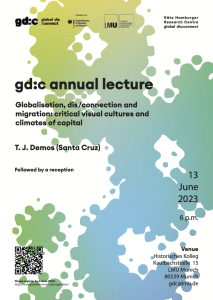

[Editor's note: The adjective 'Islamic' was changed to 'Arab' for greater accuracy in a single instance on 11 September 2023.]The ceramic works of Hanna Charag-Zuntz (1915—2007) in exhibitions throughout the world cannot be read in isolation from the nationally framed history of Israeli ceramics. The exhibition catalogues all address the creative and social connections between East and West in very different ways. Some exhibitions link the artist’s vases, pots and bottles to the themes of exile and imported European modernism as an influence on Israeli ceramics since the state was founded in 1948. This contrasts with exhibitions that link the objects as representatives of a new Jewish pottery (and identity) with archaeological finds in the Middle East and to the state’s demand for cultural assimilation and national stability. In the postmodern-oriented exhibitions, the works are presented as transcultural objects that distance themselves from the early Zionist premises of social unification, but the exhibitions’ frames hardly allow for any deviation. As different as the programmes might appear, exhibitions framed or funded by national and/or religious institutions tend to conflate Orient and Occident. Favouring a state identity based on connection, these exhibitions and their catalogues fail to problematise the complex, politically charged entanglements of East and West. By analysing three exhibitions and their catalogues with a local approach focused on the Levant, I decouple Charag-Zuntz’s ceramics, mainly created in the 1950s—70s, from national narrative patterns of abbreviated connections between East and West.[1] Drawing on Levantine cultural philosophy — a social concept linked to the Eastern Mediterranean — my aim is to reveal the artistic and social interruptions and absences that are usually blurred in nation-based frames. I work with the concept of dis:connectivity, which emphasises the simultaneity and dynamic co-constitution of integrative and disintegrative elements in globalisation processes, which only become relevant in relation to each other.[2] I argue that the vessels, which were made on the shores of the eastern Mediterranean, should be interpreted relative to a dis:connective body of water and its local cultures. This means reading the objects in connection to a Levantine Mediterranean — a reading that contradicts geopolitical narratives as presented in the catalogues and as known from theories of the Mediterranean.[3] Although these theories survey many definitions of this sea and recognise the significance of regional cultures and fragmentations, they all emphasise connectivity, which — whether conceived nationally or otherwise — ultimately produces a certain degree of temporal and spatial stability as well as homogeneity.[4] What remains absent in such representations is the predominantly North-Western perspective on the narrated Mediterranean and the structurally conditioned, asymmetrical relationship between the narrow ideas of the sea and its creators. Recontextualising these objects in terms of a ‘Levantine Sea’, which appears unifying and stable only in terms of its physical characteristics and is in fact socially marked by ambivalent connections that coincide with migration, unbounded and fluid identities, constant change and subversion,[5] would mean recognising these characteristics as intrinsic to Charag-Zuntz’s work. Relating the forms, colours, materials and techniques of her pieces to Mediterranean dis:connectivities could reveal past and present hegemonic structures that feign connectivity. In order to disrupt the nationally constructed narratives, it is necessary to allow for other perspectives and agencies. I analyse the formal properties of the ceramics through a contemporary Mediterranean lens and reveal what these objects communicate when read as creations not only of the artist, but also of the sea and its coast. Doing so yields insights as to what objects connected to a specific locality but that elude anti-territoriality can tell us about design and ultimately about society. It uncovers how objects that are materially and narratively immobilised in exhibitions but that are in a constant state of cultural performativity tell stories about heterogeneity and entanglements as well as discrimination and exclusion. It describes how the Mediterranean relates to the global North and West or Europe. And it demonstrates how dis:connective objects help to reframe the sea and contribute to thinking globalisation from the eastern and southern Mediterranean.

Fig. 01: Hanna Charag-Zuntz, Stuttgart, 1936, family collection Hanna Charag-Zuntz (from: Jüdisches Museum Berlin, Ton in Ton. Jüdische Keramikerinnen aus Deutschland nach 1933, online exhibition, 2013, https://artsandculture.google.com/story/IQVBfUHgPN-sLA?hl=de).
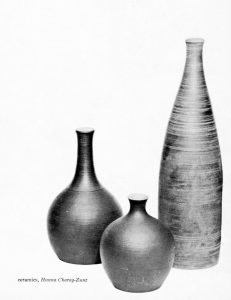
Fig. 02a: Hanna Charag-Zuntz, various ceramic vessels, undated.
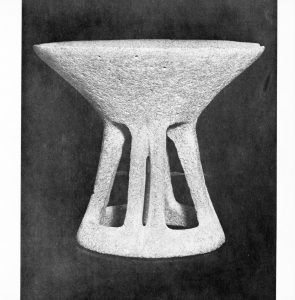
Fig. 02b: Basalt bowl, Bersheeba, 4000 BCE
(© American Federation of Arts /
Courtesy American Craft Council
Library & Archives).
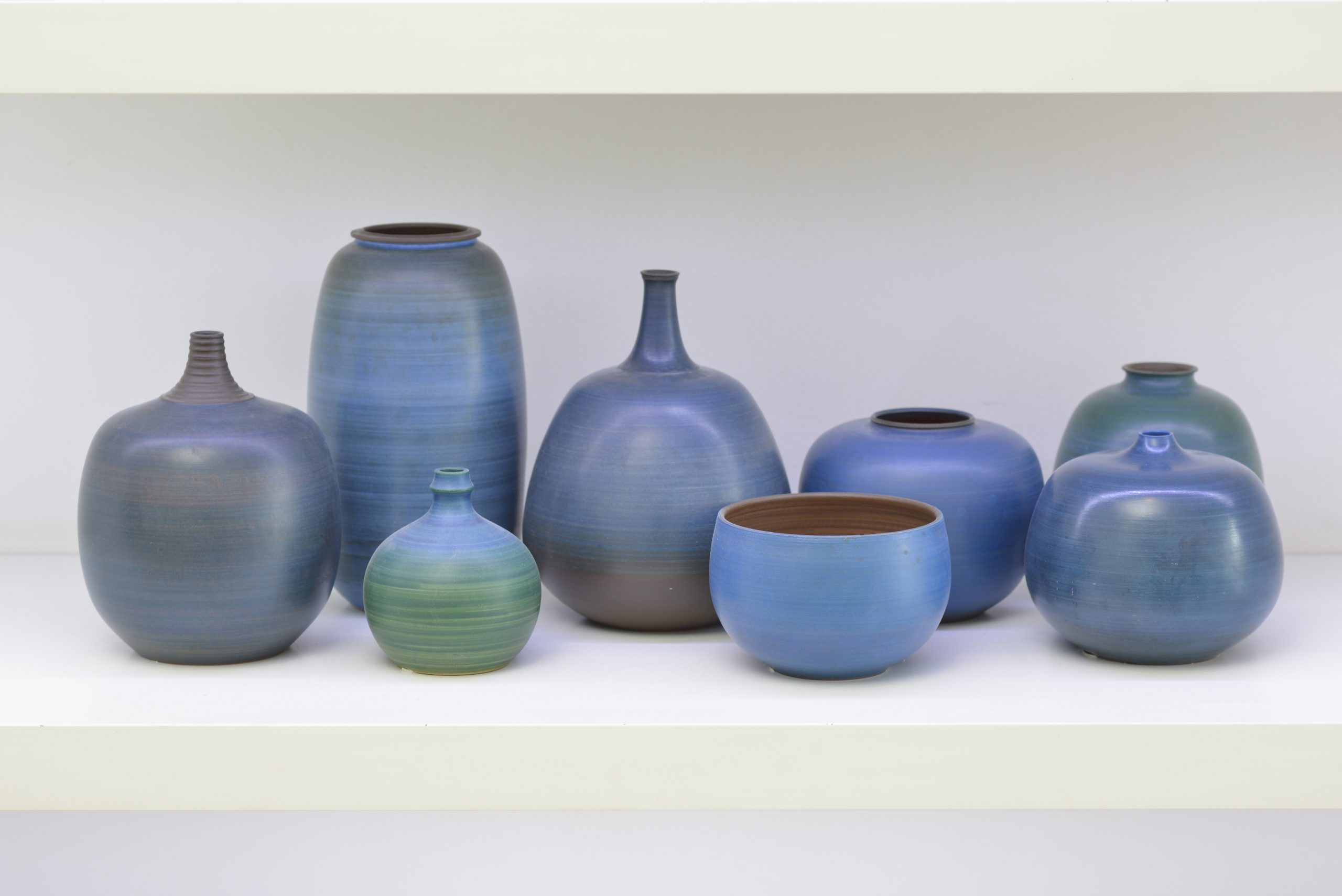
Fig. 03: Hanna Charag-Zuntz, various ceramic vessels, late 1960s and 1970—’76s, image: Shay Ben Efraim (© The Benyamini Contemporary Ceramics Centre / © Shay Ben Efraim).
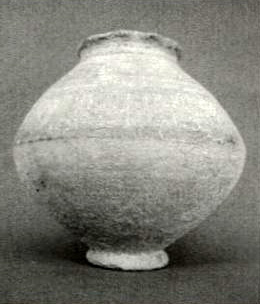
Fig. 04a:
Jar with geometric designs, Levantine, ca. 585 BCE, h. 10,2 cm, terracotta, The William D. and Jane Welsh Collection at Fordham University, (from: Barbara Cavaliere and Jennifer Udell, eds., Ancient Mediterranean Art. The William D. and Jane Welsh Collection at Fordham
University (New York: Fordham University Press, 2012), 334.)

Fig. 04b
Bottle with pouring spout for water transport, mid-4th millennium BCE, Habuba Kabira, Syria, clay, pottery wheel ceramics, h. 69 cm, Prähistorische Staatssammlung, München, inv. nr. 1985, 701; (from: Gisela Zahlhaas, Prähistorische Staatssammlung. Keramiken des Vorderen Orients im internationalen Keramik-Museum Weiden, collection catalogue, Weiden, Keramik-Museum, 1990, 65.)
[Editor's note: this essay is the first in a series on the topic of dis:connected objects, curated by our own Burcu Dogramaci, Hanni Geiger and alumna fellow Änne Söll. The series originated with the workshop on dis:connected objects held in June 2022 and will appear in a special issue of static in May. Enjoy.]
‘… scientific objects are elusive and hard-won.’ (Lorraine Daston)
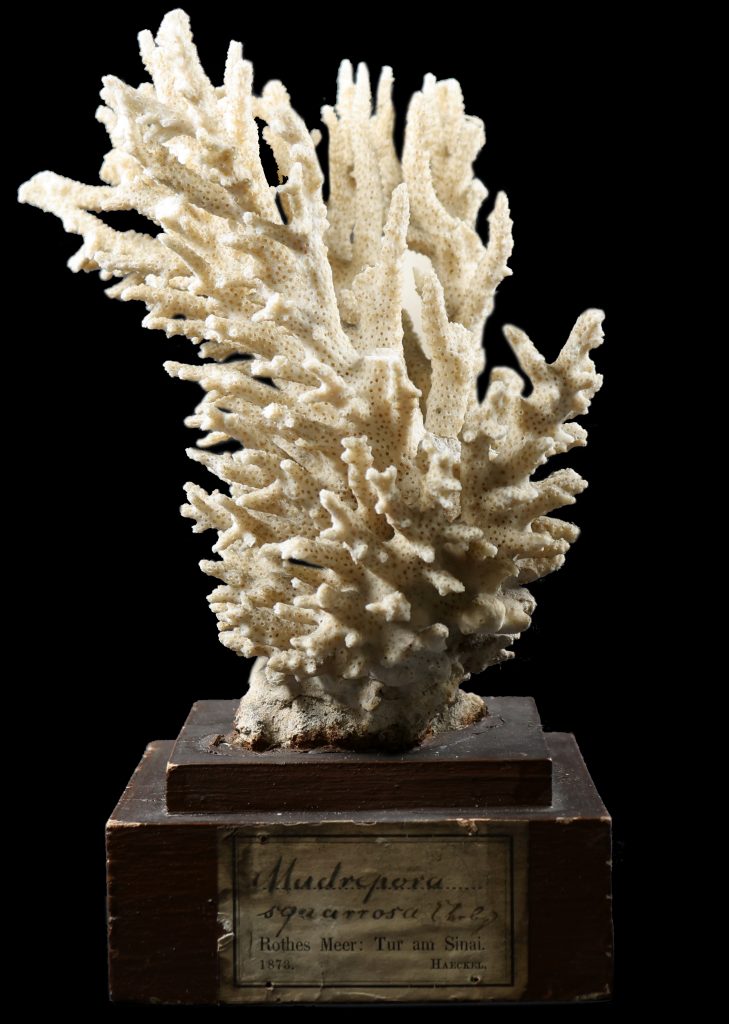
Figure 1: Madrepora (Acropora) squarrosa, collected 1873 by Ernst Haeckel near El Tor, Phyletic Museum, Jena (photo: Bernhard Bock).
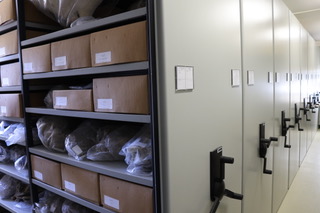
Figure 2 a & b: Phyletic Museum, Jena, repository of Haeckel’s coral specimens (photo: Bernhard Bock).
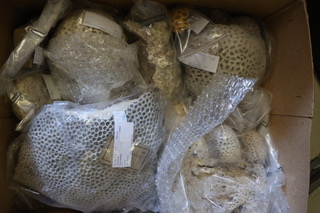 With his 1873 journey, Haeckel explicitly followed in the footsteps of the natural scientist Christian Gottfried Ehrenberg, who had already travelled to the Red Sea in 1832 and had taken up quarters in El Tor to study coral species in their natural habitat.[6] Haeckel returned to this village on the west coast of the Red Sea, which soon became a regional locus for coral research.
In his travel report, published in 1875, Haeckel complains about the ‘many and great difficulties’ of his journey to the scarcely populated Sinai Peninsula, which was, at least in the culturally biased eyes of the Western traveller, ‘mostly inhabited only by poor, half-wild Muhammedans’. ‘One must bring tents, servants, food and drinking water oneself in order to exist there. Nor is there any regular steamship connection between Suez and these wretched coastal places’.[7] The alternative overland route through the Sinai desert seemed to him equally arduous and time-consuming and, as he notes, ‘the transport of the corals I wished to collect would have been very awkward on the camel’.[8] Fortunately, the German naturalist could do without camels and servants because he could use the existing modern infrastructure of the country, which officially belonged to the Ottoman Empire. In his report, he describes hardships that were not too severe for a wealthy Western traveller. Haeckel could comfortably travel from Cairo to Suez with the railroad that opened in 1857, and he reached El Tor on board of an Egyptian navy steamship. These newly built imperial travel and transport routes, including the Suez Canal that opened in 1869, played an important part in the consolidation of colonial power.
With his 1873 journey, Haeckel explicitly followed in the footsteps of the natural scientist Christian Gottfried Ehrenberg, who had already travelled to the Red Sea in 1832 and had taken up quarters in El Tor to study coral species in their natural habitat.[6] Haeckel returned to this village on the west coast of the Red Sea, which soon became a regional locus for coral research.
In his travel report, published in 1875, Haeckel complains about the ‘many and great difficulties’ of his journey to the scarcely populated Sinai Peninsula, which was, at least in the culturally biased eyes of the Western traveller, ‘mostly inhabited only by poor, half-wild Muhammedans’. ‘One must bring tents, servants, food and drinking water oneself in order to exist there. Nor is there any regular steamship connection between Suez and these wretched coastal places’.[7] The alternative overland route through the Sinai desert seemed to him equally arduous and time-consuming and, as he notes, ‘the transport of the corals I wished to collect would have been very awkward on the camel’.[8] Fortunately, the German naturalist could do without camels and servants because he could use the existing modern infrastructure of the country, which officially belonged to the Ottoman Empire. In his report, he describes hardships that were not too severe for a wealthy Western traveller. Haeckel could comfortably travel from Cairo to Suez with the railroad that opened in 1857, and he reached El Tor on board of an Egyptian navy steamship. These newly built imperial travel and transport routes, including the Suez Canal that opened in 1869, played an important part in the consolidation of colonial power.
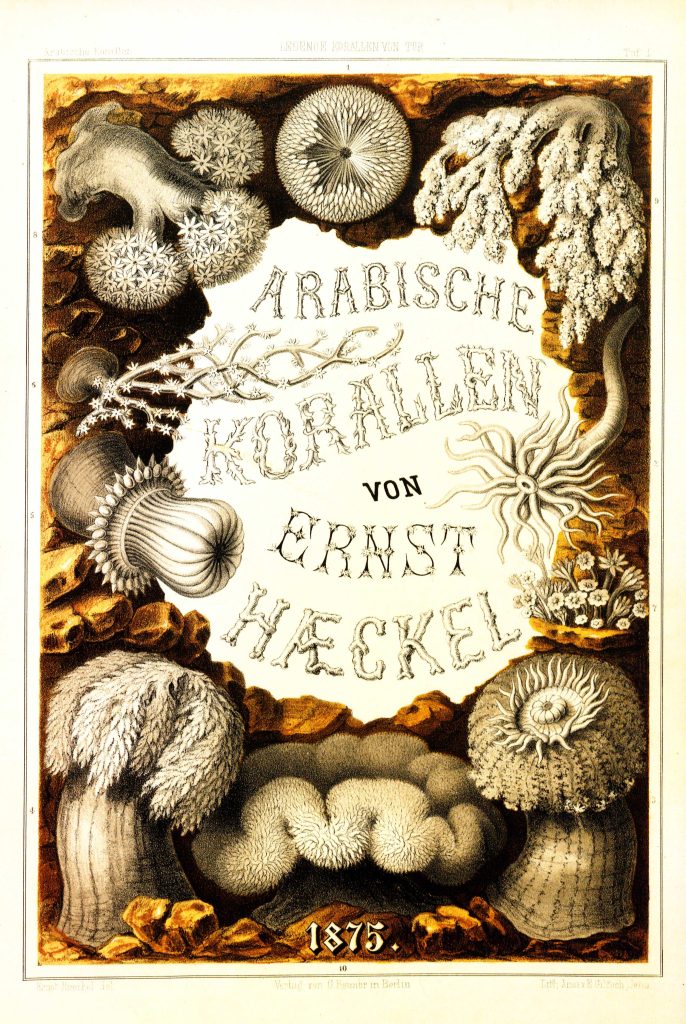
Figure 3: Ernst Heackel: Kalkgerüste toter Korallen von Tur (Calcareous scaffolds of dead corals from El Tor), Arabian Corals, 1875, plate II (scan: Petra Löffler).
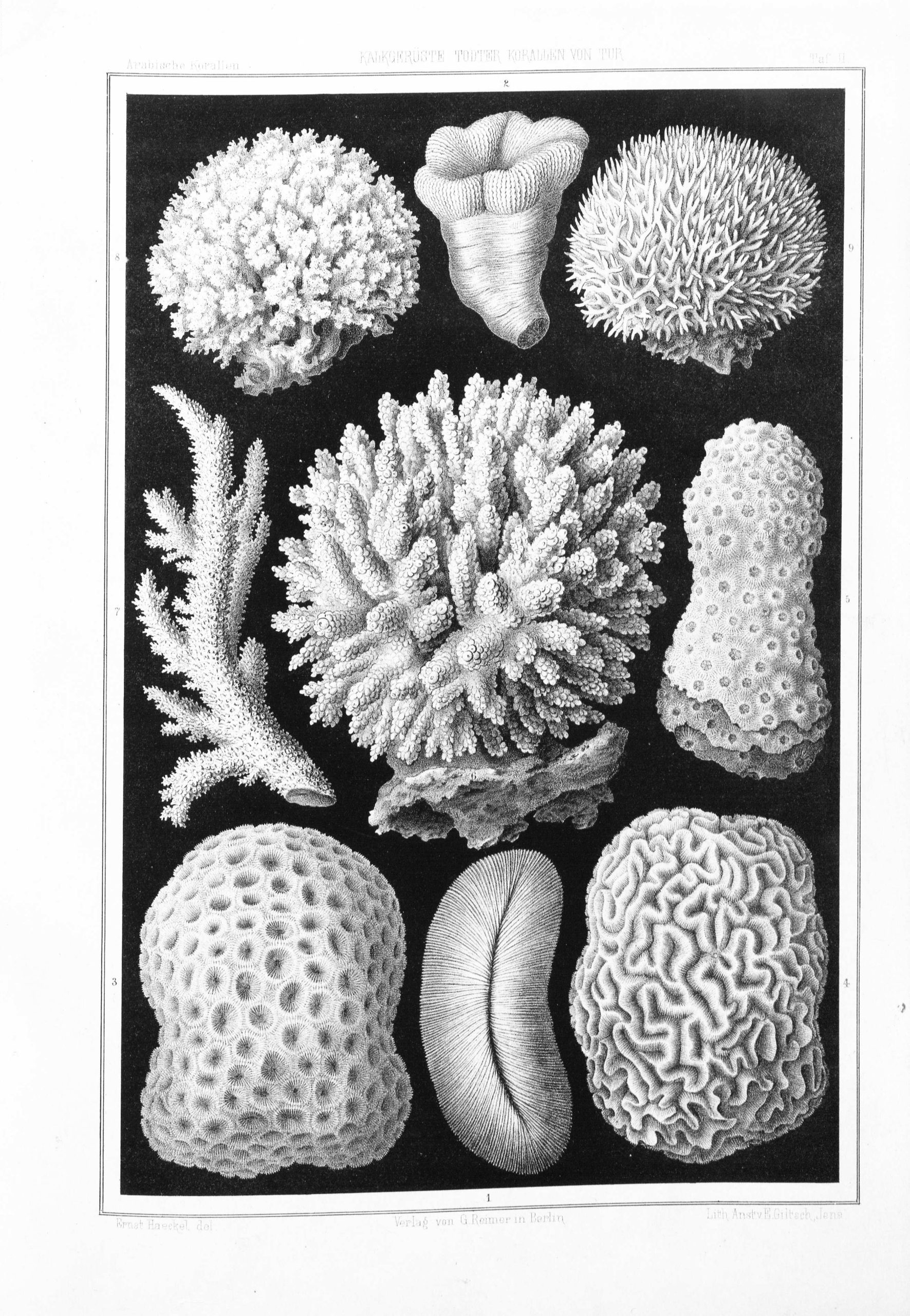
Figure 4: Ernst Heackel: Arabische Korallen (Arabian Corals), 1875, title page (scan: Petra Löffler).
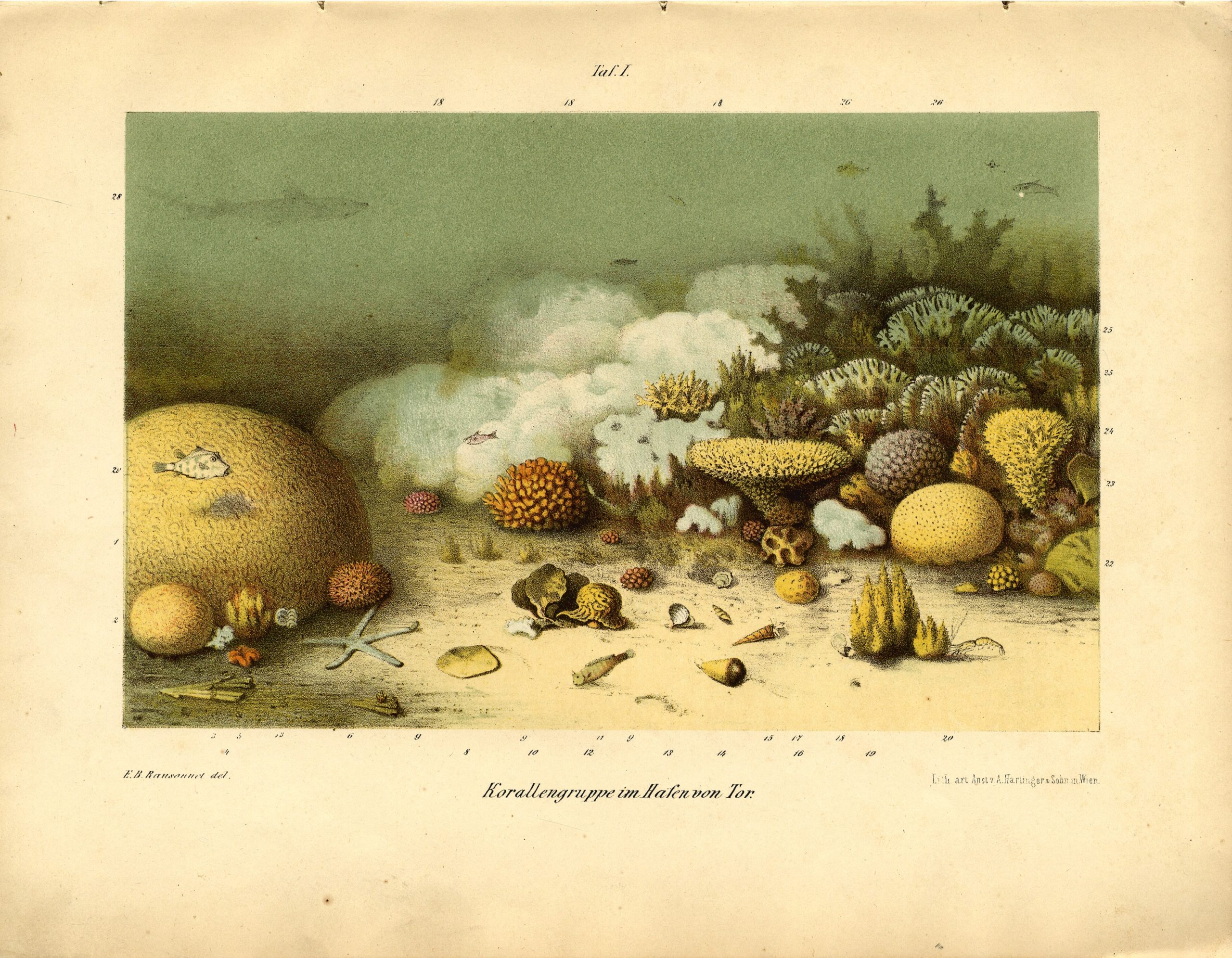
Figure 5: Eugen Baron Ransonnet-Villez: Reise von Kairo nach Tor zu den Korallenbänken des rothen Meeres (Journey from Cairo to Tor to the Coral Banks of the Red Sea), 1863, plate I.
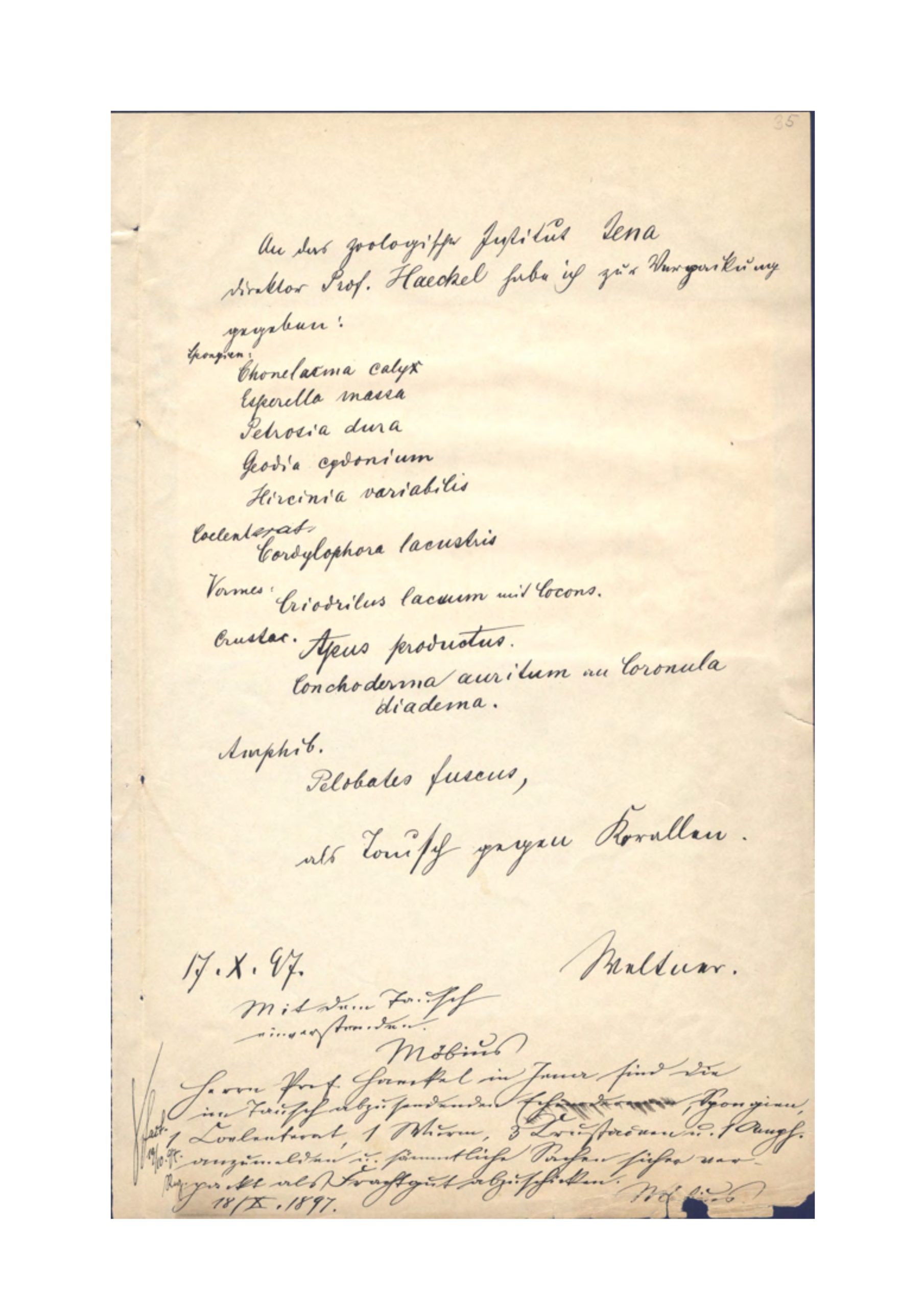
Figure 6: List of marine invertebrates’ specimens given to Ernst Haeckel by the Berlin Museum of Natural History in exchange with coral specimens (Letter from 10/17/1897 with a note by Karl Möbius from 10/18/1897) (source: Berlin Museum of Natural History)
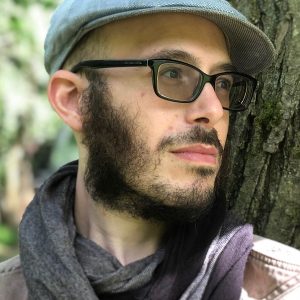 In April, historian Roii Ball commenced his term as a fellow at global dis:connect. Welcome, Roii!
Roii Ball is a social historian of nineteenth and twentieth-century Germany and Central Europe and their colonial entanglements. He is a postdoctoral lead researcher at the Religion and Politics Cluster of Excellence at the University of Münster. Ball earned his PhD from the University of California, Los Angeles in 2021 with a dissertation on the social dynamics and bureaucratic practices of German colonisation in the Polish provinces of Prussia before WWI (Advisor: David Sabean).
Ball’s work focuses on family and kinship to explore histories of colonisation and their intersection with empire-making and nation-making. His research interests include the history of knowledge, history of childhood, environmental history, and digital history. He has held fellowships at the University of Cologne, the German Historical Institute in Warsaw, and the Leibnitz Institute for European History in Mainz. During 2023 and 2024, he will also be a visiting research fellow at global dis:connect. Continue Reading
In April, historian Roii Ball commenced his term as a fellow at global dis:connect. Welcome, Roii!
Roii Ball is a social historian of nineteenth and twentieth-century Germany and Central Europe and their colonial entanglements. He is a postdoctoral lead researcher at the Religion and Politics Cluster of Excellence at the University of Münster. Ball earned his PhD from the University of California, Los Angeles in 2021 with a dissertation on the social dynamics and bureaucratic practices of German colonisation in the Polish provinces of Prussia before WWI (Advisor: David Sabean).
Ball’s work focuses on family and kinship to explore histories of colonisation and their intersection with empire-making and nation-making. His research interests include the history of knowledge, history of childhood, environmental history, and digital history. He has held fellowships at the University of Cologne, the German Historical Institute in Warsaw, and the Leibnitz Institute for European History in Mainz. During 2023 and 2024, he will also be a visiting research fellow at global dis:connect. Continue Reading
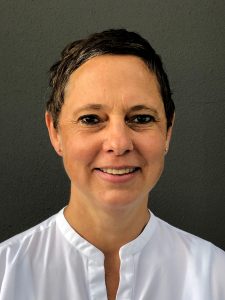 A warm welcome to our new guest Cathrine Bublatzky who joins global dis:connect in early April.
Cathrine Bublatzky is a media anthropologist and senior lecturer at the University of Tübingen.
She was formerly assistant professor at the Heidelberg Centre for Transcultural Studies.
She researches diaspora and exile, archives, visual and digital media cultures, photography, art, activism, and the aesthetics and politics of belonging throughout Europe, South Asia and the Middle East.
Cathrine has been speaker of the DFG Network Entangled Histories of Art and Migration: Forms, Visibilities, Agents (2018–2022) and author of Along the Indian Highway: An Ethnography of an International Travelling Exhibition, a monograph published by Routledge.
Her project Contemporary Photography as Cultural Praxis of Iranians in the European Diaspora, which she will continue at global dis:connect, was awarded a scholarship by the Baden-Württemberg Foundation.
Continue Reading
A warm welcome to our new guest Cathrine Bublatzky who joins global dis:connect in early April.
Cathrine Bublatzky is a media anthropologist and senior lecturer at the University of Tübingen.
She was formerly assistant professor at the Heidelberg Centre for Transcultural Studies.
She researches diaspora and exile, archives, visual and digital media cultures, photography, art, activism, and the aesthetics and politics of belonging throughout Europe, South Asia and the Middle East.
Cathrine has been speaker of the DFG Network Entangled Histories of Art and Migration: Forms, Visibilities, Agents (2018–2022) and author of Along the Indian Highway: An Ethnography of an International Travelling Exhibition, a monograph published by Routledge.
Her project Contemporary Photography as Cultural Praxis of Iranians in the European Diaspora, which she will continue at global dis:connect, was awarded a scholarship by the Baden-Württemberg Foundation.
Continue Reading
Richard M. Kabiito opened the event with the panel on absences. With a paper on Globalising Ugandan art: remixing the contest between tradition and modernity, Kabiito posed the question of absence and dis:connectivity in postcolonial Uganda and its culture. He described the estrangement and absence from African tradition left behind by colonialism. He construed the dis:connective relationship between tradition and modernity, between the indigenous and the foreign, as an identity crisis that a new African art of a ‘New Africa’ is facing. Moreover, Kabiito contributed artistic methods to the methodological discourse. Through art from Uganda, which is ‘a living modern art deeply rooted in tradition’, this absence and estrangement can be uncovered and overcome. Thus, artistic practice contributes to cultural decolonisation and functions as a method of dealing with absence and dis:connectivity. Kabiito connected art and research conclusively with a transdisciplinary method, one able to profoundly affect the culture of a ‘New Africa’. Gabriele Klein continued with a talk about The dancing body is absent/present. Methodological and theoretical aspects of digitalisation in dance. She described the approach to dance in dance studies as intrinsically dis:connected. Dance fades in its physicality after the performance. It seems simultaneously absent and present in the memories of the spectators, but it also appears transformed and present in other media. Questions about the absence of corporeality especially in relation to digital media pose epistemological problems for dance studies. Here, Klein focused on social media platforms such as TikTok, in which dance is represented in many forms and can be accessed globally. She proposed a praxeological method that respects the differences between dance and dance studies and includes the new, young generation of digitally influenced choreographers with a global reach. She concluded that digital media can partially overcome absences, but researchers need to reflect more than ever on their use of medium and methods. The ensuing discussion revealed changes in dance through digital and global social media. Contrary to the expectation that more possibilities for participation would flourish on digital media, Klein observed a standardisation of dance in the digital and thus a dwindling of diversity. Later, the artist Aleksandra Domanović spoke about cultural dislocation in her presentation From yu to me to turbo culture: presence and absence in internet technology and culture in the former Yugoslavia. The absence of a state that has dissolved with all its institutions but is present in the past of its former citizens results in a crisis of identity. They are simultaneously connected and disconnected to Yugoslavia and its culture. The identity crisis is especially apparent in the phenomenon of Turbo Culture, in which Yugoslavian architecture, public sculpture and cultural assets have been rapidly replaced by non-local structures. Thus, Turbo Culture erected monuments of Bill Clinton as well as Hollywood figures like Rocky Balboa in the former Yugoslavia. In her art, Domanović deals with these aspects of the disconnected and the absent. She sees her art as a means of pointing out this identity crisis marked by absence and dis:connectivity. Meha Priyadarshini then spoke about Fashion and its absent histories: the case of Madras fabric in the Caribbean. She notes aspects of absence in the history of Madras fabric, which colonial powers exported from India to Euro-American and African-diasporic markets. The importers never reflected on its foreign cultural heritage and traditional Indian origins. Madras fabric, with its specific colour and pattern, revolutionised the fashion industry but is dis:connected from its origins. To this day, the fashion industry is largely unaware of the origins of Madras textiles and profits uncritically from other cultures. The research of Madras fabric is complicated by this absence and dis:connectivity. No original Madras fabric has survived. Methodologically, Priyandarshini addressed this absence of historical consciousness through the open-access textile research project Subaltern Histories of Global Textiles: Connecting Collections. So, it is one aim to regrow historical connection of Madras textile to its origins, which could draw attention beyond academia to what patterns we wear our shirts and skirts. The first panel ended with the artist lecture by Parastou Forouhar and Cathrine Bublatzky. Bublatzky provided the theoretical framework and led the talk with her questions. Forouhar’s art deals with the absence and deracination of home. Her artwork Butterflies (2008) shows a butterfly collection, with each butterfly representing memories of her native Iran. The poetic encoding of memories of a changed homeland can thus be understood as an artistic method of facing absence and dis:connectivity. In her installation Written Rooms, Forouhar writes illegible Farsi texts with which Iranians are connected and disconnected at the same time; they are in familiar script but illegible nonetheless. The absences and dis:connectivity in relation to one's homeland thus become clear. Her art is a method of facing and experiencing absences and dis:connectivity. Sujit Sivasundaram opened the second panel on detours. He talked about Detours in the history of Islam in the Indian Ocean: Muslim Colombo. Originally a Muslim port city, Colombo has been a junction of cultural and economic connections for centuries. In such a globally connected city, the Muslim minority has been repressed, and their history has been erased since colonial occupation. Sivasundaram chose detours as a method of coming to terms with this marginalisation. Through the detour of material remains, such as architecture, clothes and artefacts, he explored the lives of minorities. The Colombo Grand Mosque served to demonstrate his method. Detour, as a methodological supplement, yields insights into dis:connectivity. Kerstin Schankweiler spoke about Global contexts of art in the GDR, in which detours played a decisive role. The German Democratic Republic (i.e. East Germany), where mobility was strongly controlled, opened up culturally to its so-called ‘brother nations’ via the detour of socialist internationalism. Bureaucracy and regulations extended this ideologically conditioned detour. Mail art, which overcame the Iron Curtain via the postal service, also dealt with dis:connectivity through postal diversions. The artistic relics of socialist internationalism and mail art depict detours as a way of dealing with dis: connectivity in the history of the GDR and in German-German history. Promona Sengupta talked about Time travel for all: decolonising the time-space continuum. She understands the idea of space that can be traversed and conquered as a colonial concept that shapes today's understanding. Similarly, Sengupta understands the linear concept of time as a colonial idea that supports capitalist productivity and is thus kept alive. These concepts lead to estrangement from the natural flow of space and time through colonialism and capitalism. New methods are needed to overcome them, methods that allow a non-capitalistic and non-colonial approach to space and time. Time travel, which reverses such understandings of time and space, is one example. In her conclusion, Sengupta recommended methods that question all-embracing concepts and open research to new perspectives. The lecture Rethinking urban materiality: time as a resource by Anupama Kundoo opened the third panel on the topic of interruptions. Her presentation revealed the interruptions in industrialisation, which replaced hitherto dominant local building traditions in local economies with local materials, with foreign experts and materials. Such changes actually reduce efficiency in many cases and uproot people from their buildings. Indeed, the building becomes a consumer in the global economy. She concluded by arguing for local industries and economies to create efficient architecture. Valeska Huber presented a paper entitled ´The Limits of my Language mean the Limits of my World´: language barriers and ideas of global communication in the 1920s, in which she reflected critically on English as a global lingua franca and thought about more inclusive alternatives to overcome linguistic barriers in global communication. Huber introduced the Vienna Circle of the 1920s, in which Maria and Otto Neurath, among others, developed Isotype, a pictorial language that is supposed to function across cultures and languages. Marie Neurath’s own projects were primarily responsible for Isotype’s global dissemination. Huber proposed that extending this idea could disrupt the Anglosphere and lead to more inclusive global communication and research. Thus, interruptions and dis:connectivity in global communication could be overcome. Peter W. Marx closed the panel by addressing The elephant in the room: (dis:)connecting encounters in the early modern period. Marx established dis:connectivity as the proverbial elephant in the room of global history studies. This was followed by a genealogy of the presence of elephants (and how it was documented by contemporary artists) in northern Europe from the Middle Ages to the early modern period. Marx’s genealogy showed historical interruptions and connections in the complex discourse around the elephants. From humanisation and fantasy to a symbol of power and violence, the discourse around elephants in Europe has also represented transcultural military and dialogical contact since Hannibal. Fabienne Liptay closed the conference with a screening of Atlantiques (2009, Mati Diop) and Atlantique (2019, Mati Diop). Across an interval of 10 years, the films deal with the topic of migration from Senegal across the Mediterranean to Europe. Characters meet their fates in transit. They are uprooted from their homeland and at the same time bound to it. Dis:connectivity is not just an abstract research topic, but it touches people's lives directly and concretely.Image: Ben Kamis
The speakers introduced new perspectives on dis:connective research on globalisation, including some methodological suggestions and approaches. Artistic practice uncovered dis:connectivity in several aspects, making it tangible and offering ways to deal with it. On a theoretical level, several participants emphasised the importance of critical reflection on one's own perspective and situatedness as a researcher. There were also proposals without a ripe, ready method, but set out demands, priorities and innovations for a methodology of global dis:connectivity. Indeed, this could be an initial step towards more developed methods. The ‘elephant in the room’ was certainly methodology. The dialogue and interplay between art and research invigorated the conference, resulting in a special climate of interdisciplinarity and multi-perspectivity. Minds open to novelty and awareness of the lack of a full-fledged methodology are a fine basis for further research. Facing this elephant in the room was perhaps one of the main achievements of the conference. Continue ReadingThe global dis:connect team.
Seeking to learn from other empires: the German colonial officer Glauning translated into German this British manual for military expeditions in Africa.
The era of colonialism was also an era of nationalism, where the countries of Europe sought to differentiate themselves from each other and highlight their distinctiveness. Were Germany, Britain, or France any different from other colonial nations in their conduct of war? Menger: Precisely this question is at the heart of my investigation. The answer is that there are great similarities in terms of warfare. The main differences come at the level of rhetoric, as the colonial powers strove to create a flattering self-image. Did the colonial powers share the same ideologies? Menger: They certainly shared the same racist attitudes. And springing from this, they had the same conception of how to treat their colonial subjects. Moreover, the exchange of information between colonial nations on subjects like warfare was important. In the early days of German colonial rule in the 1880s, for example, there were people like Hermann von Wissmann, who founded and moulded the colonial army in German East Africa, the largest of the German colonies. Wissmann had previously acquired experience in the service of King Leopold II of Belgium in the Congo. Incidentally, the Belgian Congo, as the colony later came to be called, is something of a misnomer, as British, French, and Dutch and other actors also played roles there. Colonial rule was always a very transnational enterprise. The historians Jonas Kreienbaum from the University of Rostock and Christoph Kamissek use the term ‘imperial cloud’ in this context. It describes the phenomenon very nicely, I think. ‘Cloud’ as in the internet cloud? But 130 years ago? Menger: It’s about the metaphorical idea that there is a knowledge base that can be accessed in a certain way from various empires. It is not limited to national borders. Although it’s often unclear where, by whom, and when this knowledge is accessed, it’s there and it spreads, like in the online cloud. Many people know precious little about the violence Germany exercised as a colonial power. Is that a problem? Why should people engage with the subject? Menger: It’s a phenomenon that helped shape the present. Our world of nation states and our global dependency dynamics. Understanding this legacy is a positive thing. If we accept that a culture of remembrance is valuable because we want to live in a democratic civil society, then it’s important to engage with our own history – including injustices that were committed in the past. This is something Germany has done quite successfully with the history of the Third Reich. And I think it’s worthwhile to come to terms with colonial injustices as well. Furthermore, there are growing numbers of people living in Germany for whom the violence of the colonial past is not something they can just ignore. For many immigrants – from Africa, for example – it is part of their own history, or at least the history of their ancestors. In this context, too, it’s important to have a shared culture of remembrance. There are some people who think that German historians and politicians have focused quite enough on violence during the Nazi dictatorship. Won’t people switch off if we start focusing on violence in the German colonial period as well? Menger: I’ve no doubt that there will be resistance. But it's not a valid argument, I think, to say that we’ve faced up to the Nazi period, so now we’re done. After all, when a society has successfully come to grips with one era of history, why should it not do the same for other periods?Wissmann‘s famous colonial handbook, published 1895. Already on its first page, it recommended its readers to study the British colonial wars.
Here everything seems that was still under construction and it is suddenly ruin.-Caetano Veloso Che Guevara once stated that Africa was ‘imperialism’s weak link’[2] with enormous revolutionary potential. Indeed, liberation wars and decolonisation processes on the continent enabled the Western and Eastern blocs to perceive some regions and geopolitical conditions as opportunities to expand their influence. The most famous conflicts in Africa during the Cold War, direct results of the logics of proxy war, exemplify this: the Congo Crisis, the Angolan Civil War and the South African Border War. Amidst this allegedly cold clash between the two blocs, an often-forgotten third force emerged, the Non-Aligned Movement, created by the pioneering efforts of Tito (former Yugoslavia), Nkrumah (Ghana), Sukarno (Indonesia), Nasser (Egypt) and Nehru (India). This paper departs from the ‘forgotten’ legacies of the Third World[3] and its practices of solidarity, delving into the phenomenon of Yugoslavian technical cooperation as a vehicle for its soft diplomacy towards Africa. I consider the Yugoslav-African entanglement by focusing on expertise, transnational networks, Cold War geopolitics and Non-Aligned cooperation, which allows me to draw on ‘the connections and exchanges, on the back and forth of people, ideas, and things across boundaries’[4], from ‘macro’ to ‘micro’ and back again. A key macro-concept here is peripheral modernity,[5] which refers to all Global South, Second and Third World nations during the Cold War. I focus on Guinea-Bissau from 1973-1983, analysing its modern architecture and public sculpture in terms of the conditions of its emergence, its aesthetic-symbolic meanings and its deterioration. In post-independence Africa, following the modernist credo, construction and infrastructure became key means through which these young nations addressed social problems and expressed their national identities.[6] Guinea-Bissau was no different. Given that history is ‘inscribed’ in architecture and public art, they are suitable entrances to study and access the complexities, difficulties, contradictions and dilemmas this country experienced from 1963 (the year of the beginning of the armed struggle for independence) to 1983 (the approximate date of the complete dissolution of the socialist project and the subsequent economic liberalisation). I aim to challenge the narrative insisting that former colonies in Africa, once postcolonial, became merely the passive recipients of technical, architectural and cultural knowledge. Despite being an extremely young, sovereign country that has also suffered coups and civil war, Guinea-Bissau developed its own modernity. However, its post-colonial modernist architecture has received little attention.[7] Is this because modern buildings there ‘are often the result of isolated acts and do not correspond to the development of any architectural culture with local roots’,[8] as Ana Vaz Milheiro has sustained, implying that they are nothing more than isolated cases? Manoel Herz implies the same: ‘We consciously decided not to document the former Portuguese colonies as their independence took place in the mid-1970s and was mostly characterized by bitter conflict and long wars that overshadowed any kind of national development’.[9] He continues, stating that ‘while examples of Late Modernist architecture certainly exist in Lusophone Africa […] they were built entirely during the colonial era without preempting the intention of decolonization’.[10] In the next section, I reveal the falsity of these last three claims with reference to a Yugoslavian-influenced modernist architectural legacy in Guinea-Bissau that flourished – and deteriorated – very rapidly. Beyond the undisputable but overlooked Yugoslavian influence and the simplistic corollaries of ‘architectural export’ and ‘knowledge transfer’, could Bissau-Guineans have played an active and decisive role in establishing a modern architectural legacy in their country between 1973 to 1983?
Image 1: Total of students from the African Party for the Independence of Guinea and Cape Verde (PAIGC) who concluded their studies abroad between 1963-1975. Data gathered by Sonja Borges, Militant Education, Liberation Struggle, Consciousness.The PAIGC Education in Guinea Bissau 1963-1978 (Bern: Peter Lang, 2019),99.
Thus, ‘modernism’ pervaded new contexts in the name of ‘knowledge transfer, overseas aid and new forms of cooperation’[17] and through gift-giving, credit and barter.[18] Yet, the idea of mere ‘export’ is misleading. ‘Modernism’ is not exclusive to Western powers. Third World countries have developed their own modernities with a considerable degree of autonomy. The neglect of these modernities and fair assessments of their autonomy highlight the problem of coloniality in the act of making biased history – and even to (induced) oblivion as a convenient political project. Considering Guinea-Bissau, three understudied historical figures are relevant to my argument: Alberto ‘Tino’ Lima Gomes, the first Minister of Public Works[19] and a local who studied architecture and engineering in Yugoslavia on scholarship;[20] his wife, Yugoslavian architect Milanka Lima Gomes, who designed a number of buildings and public monuments as a naturalised Bissau-Guinean; and Nikola Arsenić,[21] a Yugoslavian architect who worked under a long-term technical cooperation agreement and was very prolific while living there. I won’t analyse all their buildings. The point is, rather, to infer a ‘forgotten’ legacy from a selection.Image 2: African scholarship holders in Slovenia (trip to Velenje), 1963. From the photo collection of the Museum of Yugoslav History.
One of these notable constructions is the memorial building for the unilateral declaration of independence (image 3), planned and coordinated by both Alberto and Milanka Lima Gomes, consisting of a functional rotunda[22]with a vernacular thatched roof made from cibe palm trees (borassus aethiopum), bamboo and straw, it was built to officialise the unilateral declaration of independence. This event was celebrated on top of the hill near Lugadjol on 24 September 1973.[23] The construction occurred during the rainy season, against the odds, and was completed in less than three months. Apart from the practicality that the vernacular roof offered under those challenging conditions, there is another layer to consider, that of an aesthetic statement: hybridism. This is much less evident – or practically absent – in the buildings and sculptures yet to be discussed, but I’ll address that question later.Image 3: Memorial building for the unilateral declaration of independence of Guinea-Bissau on 24th September 1973, Lugadjol, east of Boé.
Surely more ambitious and formally inventive is the former presidential residence, which is located on Bubaque Island in the Bijagós archipelago and is now falling into ruin (image 4). Despite its deceivingly brutalist appearance, the concrete structure was originally painted white and was covered by bituminous sheets. This body of architectural work here presented can be seen as a creative ingestion and digestion of foreign architecture, meaning that not only a mere borrowing of white modernist forms and solutions took place, but that a local appropriation, interpretation and transformation of the modernist vocabulary also occurred, amounting to an original, hybrid architecture worth documenting and preserving.Image 4: Luís Cabral’s house in Bubaque island. State-funded and designed by Milanka Lima Gomes (1976) and Nikola Arsenić (1978). Still from © The Vanished Dream 2016
Except for the memorial building (image 3), there is nothing in these structures that makes them unmistakably ‘African’, I admit, but aesthetically, they clearly reflect pan-Africanism and Non-Aligned modernity. This, in itself, in a former Portuguese colony, already makes them original. Contradicting Manoel Herz, they were not built in the colonial era and do preempt and reflect ‘the intention of decolonization’. Compared with Ghana’s architecture of 1961-1970 (a country that, by the way, also received Yugoslav architects under technical cooperation agreement), their affinities and autonomous character become evident: a mix of ‘Eastern European modernism’,[24] ‘tropical architecture’ and vernacular elements, ‘they cannot be reduced to a sum of European ‘modernisms’.[25]Image 5: RTP África building / Namintchit restaurant, Bissau, 1976. Designed by Nikola Arsenić. Photo by © M.M. Jones ( instagram: @Bauzeitgeist ), November 2018
Image 6: Summit buildings ("cimeira"), Bissau, 1979, today partially in ruins. State-funded and designed by Nikola Arsenić; supervision: Armando Napoko; decoration: Maria Aura Troçolo; coordination: Milanka Lima Gomes. Still from © The Vanished Dream 2016.
The public sculptures, on the other hand, are, visually speaking, ostensibly ‘Yugoslavian’ and do not reference the rich and diverse local arts of Guinea-Bissau in any way (image 7). Nationalists deployed modern European aesthetics to represent emancipation: a paradox?[26] From an art-theoretical perspective, these sculptures are ‘modernist’ in the worst way; they plainly ignore their surroundings and their socio-cultural implications. In short, they do not take ‘context’ in consideration, a prerequisite of public art since the 1960s. Monuments, even more than the architecture of the period, raise the complex question of independent Africa’s hasty belief in ‘development’ and whether such belief has been beneficial to the new nations (a question that Amílcar Cabral himself, as an ‘assimilated’ local of Cape-Verdean parents, Marxist thinker and agronomist, embodied in unresolved ways).[27] If ,however, one considers the University of Ife, later renamed Obafemi Awolowo University, in Nigeria, in which Israeli architect Arieh Sharon attempted to marry modern architecture with an African visual vocabulary to the verge of stereotype, the abstract, pretentiously transcultural Yugoslavian design is arguably preferable, since it does not fall into the trap of white appropriation of another culture. Bissau-Guinean architecture and public sculpture discussed here are thus more honest. Mojca Smode Cvitanović wrote that Non-Aligned mutual cooperation ‘lost its enthusiasm’ from the early 1970s onwards,[28] though Guinea-Bissau appears to be an exception. In 1979, Fidel Castro became the new chairman of the Non-Aligned Movement, and Tito died a year later. The movement’s credibility decreased during the 1980s, coinciding with a successful coup in Guinea-Bissau. With the end of socialism in Eastern Europe in the early 1990s, the definition of ‘non-alignment’ finally changed entirely. Canonical architectural historiography, however, didn’t fully catch up with either Yugoslav or African architecture – an oversight that reveals an unfortunate prolongation of Cold War logics long after its end.[29]Image 7: Monument for the Martyrs of the Pidjiguiti Massacre, known as Mon di Timba (‘the fist of Timba’), a public sculpture located in the country’s capital, Bissau, state-funded and designed by Nikola Arsenić (1975-1978). Building technique: reinforced concrete covered with slate sheets. Still from © Memória / Calling Cabral, directed by Welket Bungué.
Modernist practices from 1973-1983 were decidedly not merely ‘a projection from outside’. On the contrary, the rapid (even if fragile) consolidation of modernism in Guinea-Bissau has been a process where locals have worked actively to make themselves modern, instead of merely being made modern by outside forces. The principal actor coordinating all the construction projects in the country during the period was Bissau-Guinean-born, the Minister of Public Works Alberto ‘Tino’ Lima Gomes. The Yugoslav fundamental participation notwithstanding, local agency was decisive and shouldn’t be overlooked. Now, what unspent fuel remains from the anti-colonial struggle and the early post-independence days to be reignited today? Or, more modestly and realistically: how can scholarly work and intellectual engagement counteract oblivion as a convenient political project? Because pan-African, socialist and Third World dreams, visions and abandoned projects might have a contemporary ‘utility’ or usefulness; they can be unearthed to be remembered, retold, reclaimed, redreamed and thus inform our political imagination. As it was shown, the unfulfilled promises of the 1973-1983 period are aesthetically latent in the ambivalent documents of the era, be they buildings, memorials or propaganda. Simultaneously ‘cultural’ and ‘barbaric’, it falls on posterity not to allow the latter to prevail. [1] The author would like to thank Ben Kamis , Nikolai Brandes, Anna Sophia Nübling, Welket Bungué, Milanka Lima Gomes, Nikola Arsenić (the son), Radovan Cukić, Matthew Jones, Juan Betancor, Lars Rudebeck, Doreen Mende, Viviane Letayf and Geraldo Pina. [2] Ahmed Ben Bella, ‘Che as I Knew Him’, Le Monde Diplomatique, October 1997, https://mondediplo.com/1997/10/che. [3] According to Duanfang Lu, ‘compared with other alternative phrases such as “developing countries”, “less developed countries”, “non-industrialized countries”, and “the South”, the Third World is more than merely a socio-economic designation. It has come to represent a forceful ideology, a meaningful rallying point, a widely shared mentality, and a unique source of identity. The phrase has proven rhetorically, politically, and theoretically effective. Despite the end of the Cold War, the term “Third World” remains viable in contemporary geopolitical vocabulary, as seen in leading scholarly journals such as Third World Quarterly and Journal of Third World Studies’ Lu Duanfang, Third World Modernism: Architecture, Development and Identity (London: Routledge, 2010), 19, 20. [4] In: Sebastian Conrad, What Is Global History? (Princeton/Oxford: Princeton University Press, 2016), 42. [5] See my ongoing curatorial project: https://ifddr.org/en/cooperations/unvollendetes_museum/ [6] Perhaps the best example is the case of Ghana under Kwame Nkrumah. An important influence on Amílcar Cabral’s thinking even, Nkrumah’s modernity sought to redefine African subjectivity, prioritising African unity over ethnic division. [7] A commendable survey can be found in: Phillip Meuser and Adil Dalbai, ‘Guinea-Bissau’, Architectual Guide. Sub-Saharan Africa. Western Africa. Along the Atlantic Ocean Coast 3 (2021): 12–67, but it’s the only one of its kind and far from exhaustive. [8] Full quote here: ‘Modern buildings in these three African provinces [Cape Verde, Guinea-Bissau and São Tomé and Príncipe] are often the result of isolated acts and do not correspond to the development of any architectural culture with local roots’ In: Milheiro Ana, ‘Resisting Modernity: Colonization and Public Works. Cape Verde, Guinea-Bissau and São Tomé and Príncipe’, in Ilha de São Jorge, ed. Paula Nascimento and Stefano Pansera (Beyond Entropy Books, 2014), 178. [9] In: Manuel Herz, ed., African Modernism: The Architecture of Independence. Ghana, Senegal, Côte d’Ivoire, Kenya, Zambia (Zürich: Park Books, 2015). [10] In: Herz. [11] Brazilian educator Paulo Freire, for example, was consulted by Guinea-Bissau’s first independent government on how to optimise the processes of attaining literacy on a national scale, among other complex dilemmas. See: Sérgio Haddad, O Educador: Um Perfil de Paulo Freire (São Paulo: Todavia, 2019); See also: Paulo Freire, Pedagogy in Process: The Letters to Guinea-Bissau (London: Bloomsbury, 2016) See also Augusta Henriques, an important educator and follower of Paulo Freire’s methods: https://en.wikipedia.org/wiki/Augusta_Henriques. [12] Already in 1967, Amílcar Cabral sent four young Bissau-Guineans to Cuba to study cinema at the Cuban Institute of Cinematographic Art and Industry (ICAIC), namely José Cobumba Bolama, Josefina Crato, Sana Na N’Hada and Flora Gomes, who studied under Santiago Álvarez, a fact that reveals Cabral’s vision for national cinema. Sana Na N’Hada completed his important film O Regresso de Amílcar Cabral in 1976. More on Guinea-Bissau’s audiovisual production since independence, see: Cunha Paulo and Catarina Laranjeiro, ‘Guiné-Bissau: Do Cinema de Estado Ao Cinema Fora Do Estado’, Rebeca - Revista Brasileira De Estudos De Cinema e Audiovisual 5, no. 2 (2017). [13] Good examples include José Carlos Schwarz and the band Super Mama Djombo. Bissau-born poet and musician José Carlos Schwarz (1949-1977) was politically active and even joined the resistance. He was imprisoned for his participation in the struggle for independence. Following independence in 1974, Schwarz became the director of the Department for Art and Culture and became responsible for Guinea-Bissau’s youth policy. Super Mama Djombo was a band from Guinea Bissau, formed in the mid-1960s. They would often play at President Luís Cabral’s public speeches, and their concerts were broadcast on live radio. In 1980, Luís Cabral was ousted, and the new regime under Nino Vieira no longer supported the band. They had fewer opportunities to perform and broke up in 1986. [14] ‘Industry in [Portuguese Guinea] was particularly underdeveloped: some factories for rice peeling, some for the extraction of fish oil and peanut oil, a few ice factories and small workshops for automobile repair, locksmiths and wood cutting, as well as distilleries for alcoholic beverages. There were no industrial companies owned by the colonizers for the exploitation of land or natural wealth: the colony’s large economic share was based on native agriculture, the acquisition of its surpluses and the organisation of internal and external trade. The level of industrialisation was close to zero, as was its economic value’. (my translation) In: Cátia Teixeira and Maria Augusta Tavares, ‘Guiné-Bissau: O Presente Lança Luz Sobre o Passado’, Diálogos Magazine, no. 3 (2013): 869–908. [15] Original quote here: ‘O primeiro período [1974-1983] é característico, porque o país, praticamente durante 10 anos, teve apenas quatro quadros formados em arquitectura e construção civil.’ In: Milanka L. Gomes, ‘Reconstrução Nacional e Balanço Das Principais Ações Realizadas Entre 1974 e 1996 Na Guiné-Bissau Bissau’ (CIALP conference intervention, 1996), Private Document. [16] In: Sonja Borges, Militant Education, Liberation Struggle, Consciousness.The PAIGC Education in Guinea Bissau 1963-1978 (Bern: Peter Lang, 2019), 98, 99. [17] In: Duanfang, Third World Modernism: Architecture, Development and Identity, 26. [18] In: Łukasz Stanek, ‘Gift, Credit, Barter: Architectural Mobilities in Global Socialism’, Archive and Editorial Project, E-Flux Architecture (blog), 2020, https://www.e-flux.com/architecture/housing/337850/gift-credit-barter-architectural-mobilities-in-global-socialism/. [19] In: ‘Boletim Oficial Da República Da Guiné-Bissau, Numero 40’, 11 October 1978, Fundação Mário Soares, Arquivo Mário Pinto de Andrade, http://www.casacomum.org/cc/visualizador?pasta=10249.003. [20] He went to Yugoslavia to study through a scholarship support and returned with heavy luggage and an engineer/architect diploma after independence.’ (my translation). In: Graça Tabanca Graca Luís, ‘Caderno de Notas de Um Mais Velho’, Blog, Luís Graça & Camaradas Da Guiné (blog), 9 November 2016, https://blogueforanadaevaotres.blogspot.com/2016/11/guine-6374-p16700-caderno-de-notas-de.html. [21] See Nikola Arsenić’s short bio in: The Vanished Dream (Siddhartha Films, 2016), http://thevanisheddream.com/category/cast/. [22] Interestingly, according to Geraldo Pina, “in Guinea-Bissau, circular houses have often been regarded as representative habitat of the native population.” In: Meuser and Dalbai, ‘Guinea-Bissau’, 26. [23] Recognition became universal following the 1974 Carnation Revolution in Portugal. For a brief description of the unilateral declaration’s ceremony, see my own text: Lucas Rehnman, ‘Amílcar Cabral d’après l’art Conceptuel or The Liberation Struggle as Conceptual Art’, The Whole Life, 24 March 2022, https://wholelife.hkw.de/amilcar-cabral-dapres-lart-conceptuel-or-the-liberation-struggle-as-conceptual-art/#footnote13. [24] It would be false to speak of ‘“socialist modernism’”, because ‘“alleging a certain formal or visual essence of “socialist modernism” makes just as much sense as trying to identify inherent aesthetic features of a “capitalist modernism”, a label that no one but the most hardened socialist realist critic would take seriously, because it too broadly equates cultural and political categories’.” Vladimir Kulić, Wolfgang Thaler, and Maroje Mrduljas, eds., Modernism In-Between: The Mediatory Architectures of Socialist Yugoslavia (Berlin: Jovis Verlag, 2012), 17. [25] In: Łukasz Stanek, ‘Architects from Socialist Countries in Ghana (1957–67): Modern Architecture and Mondialisation’, Journal of the Society of Architectural Historians 74, no. 4 (December 2015): 416–42. [26] Full quote here: ‘Only in postcolonial history writing is agency sometimes attributed to Africans, but, even then, typically only to nationalists who, paradoxically, deployed a modern European architecture to represent emancipation.’ In: Ikem Okoye, ‘Where Was Not Modernism?’, CCA Articles, n.d., https://www.cca.qc.ca/en/articles/77238/where-was-not-modernism. [27] Regimes in the new African nations adopted the Enlightenment’s scientific heritage without any discussions of its cultural implications. This was problematic […] as the ‘machine was not neutral’. It could also be added that this was not only the case with the scientific heritage, but applied equally to the artistic heritage as well.’ In: Bojana Piškur, Southern Constellations: The Poetics of the Non-Aligned (Ljubljana: Moderna galerija, 2019), 16 and Piškur specifies the meaning of ‘machine’ as follows: ‘Machine as one of the instruments of cultural transformation that was brought to a space whose own cultural history had not prepared them for this new device’ a. And: ‘Colonialism brought the machine into spaces whose own cultural history had not prepared them for this new device, and besides, the machine and mechanization had been one of the instruments of cultural transformation. A machine is imbued with cultural forms; the tractor, for example, changes the relationship of farmers to their fields, each other, and the place of the plough in their cosmological world. The tractor would not leave […] social relations unchanged. […] The bulk of the social order inhabited the machine and grew around it’; In: Vijay Prashad, The Darker Nations: A People’s History of the Third World (New York: The New Press, 2007). [28] Full quote here: ‘The need for foreign personnel in developing countries was most stressing right after their independence, which was regularly and effectively accommodated by Yugoslavia, in line with its own political interests. The change in trends of technical cooperation, however, occurred in the early 1970s as a result of the events on both sides. In Yugoslavia, the living standard improved. The developing world, on the other hand, suffered a number of political and economic crises causing social instability. The generational shift and decentralization of Yugoslavia further weakened the integrity of the non-alignment policy, which lost its enthusiasm, proved to be less pragmatic than expected. This redirected technical cooperation towards partners who were able to secure economically and socially stable conditions for assignments.’ In: Smode Cvitanović, ‘Tracing the Non-Aligned Architecture: Environments of Technical Cooperation and the Work of Croatian Architects in Kumasi, Ghana (1961-1970)’, Histories of Postwar Architecture 3, no. 6 (2020): 34–67. [29] Full quote here: ‘Eastern European architecture as a whole has largely been left out of the discipline’s modern canonical history, an oversight that not only underscores an ongoing Eurocentric (Western) bias, but also reflects the prolongation of the cultural logic of the Cold War long after its end’. In: M. Stierli and Vladimir Kulić, Toward a Concrete Utopia: Architecture in Yugoslavia, 1948–1980 (New York: The Museum of Modern Art, 2018).Image 8: Commemorative stamp with Amílcar Cabral’s mausoleum represented, a monument located in Fortaleza de São José da Amura, Bissau, state-funded and designed by Zoran Jovanović, built in 1977.
In July 2022, the word of the month in the German theatre scene was Publikumsschwund. Numerous newspapers and magazines carried headlines featuring the term and all agreed that theatres had had a bad season even though there were few to no restrictions. The Süddeutsche Zeitung published a long article titled Der Einbruch: Dem Theater fehlen die Zuschauer (The collapse: The theatre lacks spectators),[3] in which the authors, theatre critics Peter Laudenbach (Berlin) and Egbert Tholl (Munich), presented results of a journalistic survey they had undertaken. Artistic directors (Intendanten) reported that theatres had lost half of their subscribers in the past two years — a brutal slump, also caused by the fact that many houses had to suspend their subscriptions in winter because of the pandemic restrictions. Prominent stages such as the Berlin Volksbühne were happy if they managed to sell 25% of seats. At Dortmund’s city theatre, artistic director Julia Wissert had an average of 44 paying spectators per performance over the past season — in a house with 500 seats. The harshest polemic is reserved for the Munich Kammerspiele:Fig.1 Berliner Ensemble. Seating according to the rules of social distancing. https://twitter.com/blnensemble/status/1278239898525466625/photo/1
The biggest failure of the Münchner Kammerspiele in the current season was a play about living and dying with Covid in intensive care. And apparently fewer and fewer audience members feel like being lectured from the stage with banalities critical of capitalism and the latest twists and turns of identity politics. Here the pandemic acts like an accelerant. It intensifies an audience crisis that badly managed theatres have brought on themselves. Their self-referentiality and arrogance are not likely to be a wise survival strategy in the face of failing audiences.[4]The polemic against certain forms of ‘progressive’ theatre is further sharpened by showing that theatres following mainstream programming, such as the Berlin Ensemble (84% capacity) or Munich’s own Volkstheater, could demonstrate robust attendance figures. The authors conclude that spectators are looking for either familiar titles, great acting or ‘genuine stories’. While the author-critics clearly have a critical axe to grind in respect to post-dramatic, experimental theatre (which programmatically eschews all three criteria), a recent empirical survey confirms the overall drop in attendance. In July 2022 the Deutsche Bühnenverein (the German-speaking theatre-managers association) presented the official theatre statistics for the previous season. Compared to 2018/2019, the last pre-Covid season, the 2020/21 season demonstrates a colossal 86% drop in attendance figures.[5] These figures represent the highpoint of the corona pandemic as well as periods of intermittent reopening and do not take account of the ‘recovery’ in spring and summer 2022. The figures are by any account dramatic and represent a major interruption of an established cultural practice: attending theatre.
The hype was, however, more discursive than actual. Characteristic for discursive hype is a collection of essays published quickly in autumn 2020: Lernen aus dem Lockdown? Nachdenken über Freies Theater (Learning from the lockdown? Reflections on independent theatre).[6] As the title indicates, the main focus is on the independent sector, which was especially hard hit by the total shutdown of all live performance. The embrace of digital technology, for example, is one of the more emphatic stances we find in the independent scene which implies a critique of entrenched positions. For example, in the article by Michael Annoff und Nuray Demir, Showcase im Splitscreen: Videobotschaften an die Dominanzkultur (Show case in a split screen: video messages to the dominant culture):Fig 2. Luc Perceval’s production of Yellow – The Sorrows of Belgium II: Rex at NTGent, an exploration of Belgian collaboration with the Nazis, was made available as a livestream in March 2021. New performances in November 2022 are no longer streamed. Image: https://www.ntgent.be/en/productions/yellow-ntgent
In the silence of the home office, old audience-development dreams are awakened, in which new groups of visitors are won over without having to change themselves…. But theatre will only emerge stronger from the crisis if it starts from scratch: with its programming and its dramaturgies. In 2018, The Carters shot their ‘APES**T’ video at the Louvre and quickly had more clicks than the museum had visitors all year.[7]To date 233 million views on YouTube suggest indeed that a rap video filmed in a high-culture temple finds more interest than a production from the independent performance scene.
Their point is that the video is a beautifully filmed and iconographically resonant work referencing numerous memes and tropes of Black culture, which demand exegesis using the tools of performance analysis. As the authors put it: ‘Mona Lisa had to settle for the role of an extra, like an aging silent film star’.[8] There is also a definite pessimistic undertone in their argument: ‘In the 2020 crisis, TikTok dances go through the roof. The audience figures for the lockdown programmes of German-language cultural institutions, however, are languishing in double digits’.[9] Can this discrepancy be bridged? The tension between the past and the future is framed in the Carters’ video as a form of Afrofuturism, and as a more universal digital future, a theme that runs through the collected essays like a red thread. It is a tension that remains unresolved, intentionally so, as the exponents of the metaphysics of presence defend positions against or in contrast to the advocates of the digital future. In the cold light of empirical research, the digital future appears less than incandescent. The survey cited above counted a total of 245 464 tickets sold for digital theatre, a small fraction of total sales (under pre-pandemic conditions the German-speaking theatres sell about 20 million tickets per annum). At least an increase in productions has been noted. In the last pre-Covid season of 2018/19, a total of zero digital productions was recorded versus 18% in the 2020/21 season, although the ticket sales suggest the attendance was quite modest.[10] Some theatres have introduced digital production units alongside the traditional divisions of drama, opera and dance. It remains to be seen whether they are here to stay. Theatre institutions around the world pin their claims for legitimacy and hence public funding on providing (performing) art as a ‘live’, not a digital experience.Fig.3 The Carters APES**T. YouTube screenshot.
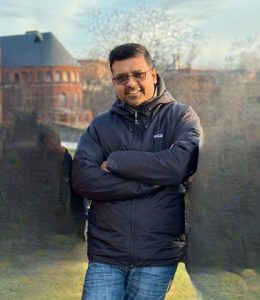 A warm welcome to our new guest Arnab Dey who joins global dis:connect in early February.
Currently an associate professor of history at the State University of New York at Binghamton, Arnab is a historian of modern India and the British Empire, with research interests centred around questions of law, labour and the environment. Arnab’s first monograph, Tea Environments and Plantation Culture looked at the monoculture tea enterprise of British east India. This study brought the plant and the plantation together in analysing the praxis and politics of commodity capitalism. His associated research agendas and publications have similarly involved tracing imperial capital, legal regimes and environmental transformations in the British colonial world and the Indian subcontinent. Continue Reading
A warm welcome to our new guest Arnab Dey who joins global dis:connect in early February.
Currently an associate professor of history at the State University of New York at Binghamton, Arnab is a historian of modern India and the British Empire, with research interests centred around questions of law, labour and the environment. Arnab’s first monograph, Tea Environments and Plantation Culture looked at the monoculture tea enterprise of British east India. This study brought the plant and the plantation together in analysing the praxis and politics of commodity capitalism. His associated research agendas and publications have similarly involved tracing imperial capital, legal regimes and environmental transformations in the British colonial world and the Indian subcontinent. Continue Reading